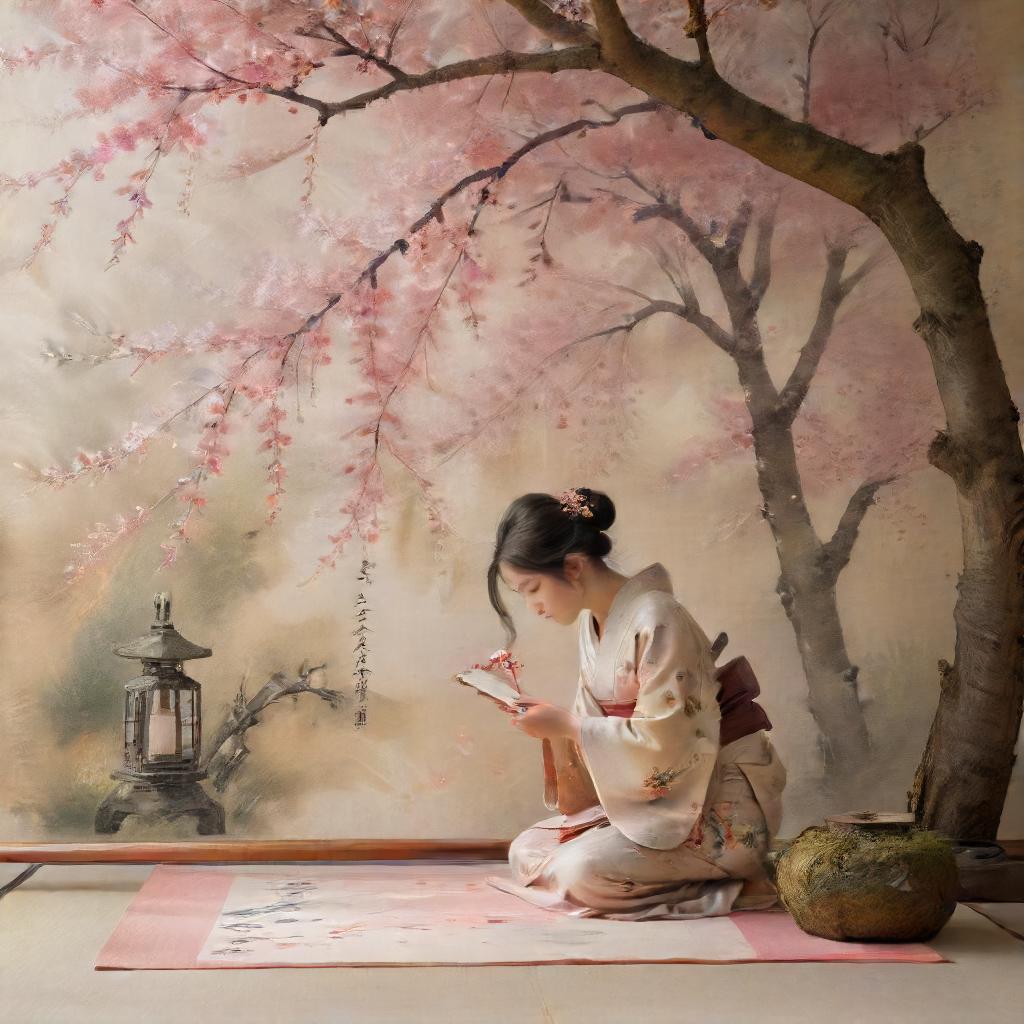Zen and nature harmony is a concept that emphasizes the connection between humans and the natural world. It is rooted in the principles of Zen Buddhism, which emphasizes mindfulness, simplicity, and the present moment.
The concept of nature harmony encourages individuals to live in harmony with nature, to appreciate its beauty, and to recognize the interconnectedness of all living things. This philosophy has gained popularity in recent years as people seek to live more sustainable and mindful lives.
Zen Principles for Achieving Harmony with Nature
1. Embrace Simplicity and Minimalism
In today’s fast-paced world, it is easy to get caught up in the chaos and clutter. Nonetheless, embracing simplicity and minimalism can help us find harmony with nature. By decluttering our lives and focusing on the essentials, we can create a sense of calm and balance. Simplifying our surroundings allows us to appreciate the beauty of nature and fosters a deeper connection with the world around us.
2. Practice Mindfulness in Nature
Mindfulness is the practice of being fully present in the moment and paying attention to our thoughts, feelings, and surroundings without judgment. When we apply mindfulness to our experiences in nature, we can fully immerse ourselves in the beauty and serenity of the natural world. Take the time to notice the colors, smells, and sounds around you. Allow yourself to be fully present and let go of any distractions. Mindful engagement with nature can empower our well-being and promote a sense of harmony.
3. Cultivate Gratitude for the Natural World
Gratitude is a powerful tool for cultivating harmony with nature. When we express gratitude for the natural world, we develop a deeper appreciation for its wonders and a desire to protect and preserve it. Take a moment each day to reflect on the beauty and abundance of nature. Whether it’s a breathtaking sunset, a fragrant flower, or a gentle breeze, express gratitude for these gifts. By cultivating gratitude, we can foster a harmonious relationship with the natural world and become better stewards of the environment.
| Principle | Description |
|---|---|
| 1. Embrace Simplicity and Minimalism | Incorporate minimalism in your lifestyle and surroundings to create a sense of calm and appreciation for nature. |
| 2. Practice Mindfulness in Nature | Engage in mindful experiences in nature by fully immersing yourself in the present moment and appreciating its beauty. |
| 3. Cultivate Gratitude for the Natural World | Develop a sense of gratitude for the wonders of nature, fostering a desire to protect and preserve it. |

Embedding Zen practices into your outdoor activities
Engaging in outdoor activities not only allows you to connect with nature but also provides an opportunity to incorporate Zen practices into your daily routine. By embracing mindfulness and finding stillness in nature, you can empower your overall well-being and inner peace. This section explores three ways to integrate Zen practices into your outdoor adventures:
Meditative walking in nature
One way to cultivate a sense of calm and tranquility is through meditative walking in nature. As you stroll along scenic trails, focus on each step, feeling the ground beneath your feet. Allow your senses to fully experience the sights, sounds, and smells of the natural environment. This practice promotes mindfulness and helps to quiet the mind, allowing you to be present in the moment.
Mindful gardening for inner peace
Gardening can be a therapeutic activity that brings you closer to nature and helps you find inner peace. By tending to plants with care and attention, you can cultivate a sense of mindfulness and connection with the earth. Engage all your senses as you touch the soil, smell the flowers, and listen to the rustling leaves. The act of nurturing plants can be a meditative practice that brings a sense of fulfillment and serenity.
Finding stillness in nature through birdwatching
Birdwatching offers an opportunity to immerse yourself in the beauty of nature during finding stillness within. As you observe the graceful flight and vibrant colors of birds, allow yourself to be fully present in the moment. Notice the patterns and behaviors of different species, and let the tranquility of nature wash over you. Birdwatching can be a peaceful and contemplative activity that allows you to reconnect with the natural world.
Creating a Zen-inspired outdoor space
A Zen-inspired outdoor space can provide a peaceful and harmonious retreat right in your own backyard. By obeying a few key principles, you can design a minimalist garden that promotes relaxation and serenity. Including natural materials for furniture and decor adds to the aesthetic appeal and creates a sense of connection with the surrounding environment. Additionally, melding water features can amplify the tranquility of the space, creating a soothing atmosphere.
1. Designing a minimalist garden
In a Zen-inspired outdoor space, simplicity is key. Emphasize clean lines, open spaces, and a limited color palette. Remove any clutter or unnecessary elements to create a sense of calm and order. Use native plants that require minimal maintenance and arrange them in a way that promotes balance and harmony. Consider encompassing traditional Zen elements such as gravel or sand for a Zen rock garden or a small meditation area.
2. Using natural materials for furniture and decor
To elevate the natural ambiance of your outdoor space, opt for furniture and decor made from natural materials such as wood, bamboo, or stone. These materials not only blend seamlessly with the surroundings but also provide a tactile and visually appealing experience. Choose simple and understated designs that complement the overall minimalist aesthetic.
3. Enmeshing water features for tranquility
Water features are an integral part of a Zen-inspired outdoor space as they symbolize tranquility and create a soothing ambiance. Consider adding a small pond, a cascading waterfall, or a gently flowing stream. The sound of water can help mask unwanted noise and promote relaxation. Arrange seating areas near the water features to maximize the calming effect.

Connecting with nature through Zen-inspired activities
In today’s fast-paced world, finding ways to connect with nature can be a rejuvenating and fulfilling experience. Zen-inspired activities offer a unique opportunity to immerse oneself in the beauty and tranquility of the natural world. This section explores three such activities that can help individuals find solace and mindfulness amidst nature’s wonders.
1. Yoga and meditation in natural surroundings
Practicing yoga and meditation in natural surroundings can intensify the mind-body connection and provide a sense of serenity. Whether it’s practicing asanas on a secluded beach or meditating amidst a lush forest, the combination of physical movement and mindful breathing can bring about a deep sense of peace and rejuvenation.
2. Forest bathing for relaxation and rejuvenation
Forest bathing, also known as Shinrin-yoku, is a Japanese practice that involves immersing oneself in the atmosphere of a forest. This practice encourages individuals to engage their senses and mindfully observe the natural environment. Research has shown that spending time in nature can reduce stress levels, boost the immune system, and improve overall well-being.
3. Nature photography as a form of mindfulness
Capturing the beauty of nature through photography can be a meditative and mindful experience. It allows individuals to focus on the present moment, paying attention to details and appreciating the intricate wonders of the natural world. Whether it’s capturing a vibrant sunset or a delicate flower, nature photography can serve as a form of self-expression and a way to connect with the environment.
| Activity | Benefits |
|---|---|
| Yoga and meditation in natural surroundings | Enhances mind-body connection, provides serenity |
| Forest bathing | Reduces stress, boosts immune system, improves well-being |
| Nature photography | Offers mindfulness, captures the beauty of nature |

Embracing the seasons in Zen and nature
Experience the profound connection between Zen philosophy and the ever-changing seasons of nature. This section explores how embracing the beauty and wisdom of each season can augment our lives and bring us closer to a state of inner peace and harmony.
Finding beauty in each season’s changes
Acquire the magic of witnessing the transformation of nature as the seasons unfold. From the vibrant colors of spring to the golden hues of autumn, each season offers a unique spectacle of beauty. Scrutinize how cultivating mindfulness and awareness can help us appreciate the intricate details of nature’s cycles.
Practicing acceptance and letting go
Learn how the changing seasons can serve as a powerful metaphor for the impermanence of life. By observing nature’s ability to let go of what no longer serves it, we can find inspiration to release attachments and cultivate a sense of acceptance. Dive into the practices of meditation and mindfulness that can support us in embracing change with grace.
Celebrating the cycles of nature
Join us in celebrating the cyclical nature of existence and the wisdom it holds. Pioneer rituals and traditions from different cultures that honor and connect with the seasons. Acquire how aligning ourselves with these natural rhythms can bring a deep sense of connection and harmony to our lives.
| Season | Characteristics |
|---|---|
| Spring | The season of rebirth and renewal, marked by blooming flowers and warmer temperatures. |
| Summer | A time of abundance and growth, with longer days and vibrant green landscapes. |
| Autumn | Known for its colorful foliage and harvest season, a time of reflection and gratitude. |
| Winter | A season of stillness and introspection, where nature rests and prepares for new beginnings. |
Read More:
1. Art of Simplicity: Crafting a Zen-inspired Life
2. In the Now: Embracing the Essence of Present Moment Zen